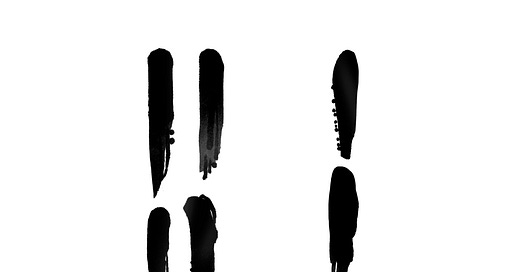Life's Crossroads: Irosun Owonrin’s Wisdom for Transformation and Protection
Weekly Prediction for Odu Ifá Irosun Owonrin
Weekly Prediction for Odu Ifá Irosun Owonrin
This week, Odu Ifá Irosun Owonrin brings a profound message of transformation, balance, and the importance of avoiding conflict. It teaches us that by embracing change and making full use of our talents, we can navigate the unexpected challenges that life may present. This Odu also warns against arrogance and the potential consequences of resisting fate, which can lead to chaos or personal instability.
Irosun Owonrin reminds us to stay vigilant in our relationships, both personal and professional, and to avoid deceit, as hidden enemies or ill-wishers may be lurking. It’s a time to be cautious, avoid unnecessary conflict, and focus on listening to divine guidance, especially from the ancestors.
Key Orishás Active on This Path
Shango: The Orisha of thunder, fire, and justice plays a critical role in this Odu. His energy emphasizes the need for fairness, courage, and swift action to correct wrongs, but it also warns against letting pride or temper lead to unnecessary conflict.
Elegbara (Eshu): As the gatekeeper and messenger of the divine, Elegbara’s influence in this Odu is profound. His presence reminds us to stay connected to our spiritual path and to honor the crossroads in our lives with wisdom, making offerings that ensure safe passage through life’s challenges.
Yewá: The Orisha of purity and death signals a need for cleansing and renewal. Her role in this Odu highlights the importance of spiritual and emotional purification, particularly for women. She asks for offerings to ensure that old, harmful patterns are shed, making way for a new path.
Obatalá: As the Orisha of peace and wisdom, Obatalá brings clarity to this Odu, helping to avoid the mental instability or confusion that can arise from resisting fate. His energy promotes calmness and protection, especially for those who seek his guidance.
Myth: The King Who Nearly Lost His Crown
In this Odu, a king was threatened with the loss of his crown due to his arrogance and refusal to heed divine warnings. Elegbara and Shango, working together, ate a rooster as part of a ritual to protect the king. However, the king ignored their advice, focusing on material gain rather than spiritual alignment. Soon, his enemies closed in, and the king found himself isolated, with one foot in the grave and the other in prison. Only by humbling himself, making the appropriate sacrifices, and wearing a silver bracelet in honor of Obatalá was he able to recover his position and save his kingdom.
This myth teaches us the importance of humility, listening to wise counsel, and making sacrifices to avoid catastrophe. It serves as a reminder that arrogance and neglecting spiritual responsibilities can lead to devastating consequences.
Proverbs of Irosun Owonrin:
"Do not give your hand to others, for they may lead you to ruin."
This proverb warns us about the danger of misplaced trust and being overly reliant on others for guidance.
"If pride goes before, misfortune will follow behind."
A reminder that arrogance can blind us to the dangers ahead, leading to unnecessary suffering.
Consequences for the Week
Under the influence of Irosun Owonrin, this week presents a path of potential prosperity and success, but only for those who are willing to adapt, make the necessary sacrifices, and avoid conflict. Those who do not heed the warnings of this Odu may face betrayal, hidden enemies, or mental instability. Additionally, there are potential health concerns, especially related to stress and mental strain. It is essential to avoid arrogance, take care of your physical and spiritual well-being, and ensure your relationships are balanced and harmonious.
DIY Ritual for Balance and Protection (Without Animal Sacrifice)
Materials:
Silver bracelet (for Obatalá)
White cloth (for purity and peace)
Red cloth (for protection)
Coconut water (for spiritual cleansing)
Palm oil (for clearing blockages)
A small bowl of river water or natural water
White candle
Instructions:
Prepare the Sacred Space: Lay out the white and red cloths in a quiet, calm area, symbolizing purity and protection. Place the bowl of natural water (river or rainwater) in the center, representing flow, clarity, and the removal of obstacles.
Offer the Silver Bracelet: Place the silver bracelet on the white cloth as an offering to Obatalá, the Orisha of wisdom and peace. Light the white candle and ask for his guidance in maintaining clarity, purity, and harmony in your life. Ask him to protect you from confusion or mental distress.
Coconut Water Cleansing: Gently pour some coconut water over your hands and forehead, asking Yewá for emotional and spiritual purification. Speak to Yewá, requesting her guidance to help release any old patterns or energies that no longer serve you, and to cleanse away negativity.
Palm Oil for Protection: Apply a few drops of palm oil to the red cloth, symbolizing protection against negativity and blockages. Place this near the entrance to your home or sacred space to create a barrier of protection. Ask Elegbara (Eshu) and Shango to guard your home and clear any obstacles from your path, ensuring that no harmful energies enter your space.
Water for Renewal: Dip your fingers into the bowl of natural water and sprinkle it lightly around your space while repeating the following affirmation: “May the waters of Yemayá and Yewá cleanse and purify my surroundings. May Elegbara and Shango guide me through challenges with strength and protection.”
Conclude the Ritual: Let the candle burn naturally. Leave the sacred space undisturbed for at least 24 hours to allow the energy to settle. After this, respectfully pour the water and coconut water outside near a plant or body of water to return the energy to nature.
By performing this non-sacrificial ritual, you align yourself with the protective, cleansing, and guiding energies of the Orishás in the Odu Irosun Owonrin. This ritual invites balance, clarity, and spiritual protection into your life.
Àṣẹ.
Baba Tilo de Àjàgùnnà
DAILY IFÁ





